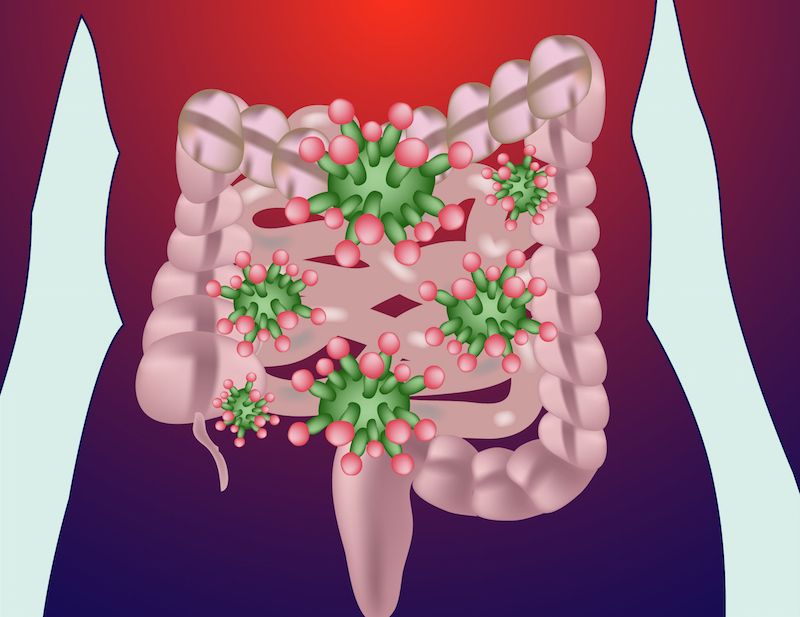Fat Flora? Gut Bacteria Differ in Obese Kids

Obese children have a different population of microorganisms living in their intestinal tracts, compared with lean children, researchers have found. These microorganisms appear to accelerate the conversion of carbohydrates into fat, which then accumulates throughout the body, the researchers said.
The study is the first to find a connection between the gut microbiota and fat distribution in children. The gut microorganisms in obese children are similar to those seen in previous studies of obese adults, providing evidence that bacteria play a role in excess weight gain starting at an an early age.
The researchers could not determine why the microbiota differ between obese and lean people, but speculated that different diets likely contribute to the growth of one kind of bacteria compared to another. [Body Bugs: 5 Surprising Facts About Your Microbiome]
"In our study, we hypothesize that a diet high in carbohydrates might favor the growth of fermenting bacteria and favor accumulation of extra energy" in the form of body fat, said Dr. Nicola Santoro, an associate research scientist in the department of pediatrics at Yale University in New Haven, Connecticut, who led the study.
Fermentation is a process by which gut bacteria break down carbohydrates and convert them into other compounds, including fats, Santoro told Live Science.
Approximately 17 percent of American children and teens are obese, a percentage two to four times higher compared to 30 years ago, according to the Centers for Disease Control and Prevention (CDC). Obese children are more likely to become obese adults and have a higher risk for health problems such as heart disease, type 2 diabetes, stroke, several types of cancer and osteoarthritis, according to CDC data.
In Santoro's study, published today (Sept. 20) in the Journal of Clinical Endocrinology & Metabolism, researchers examined gut microbiota in 84 children and teenagers between ages 7 and 19. These included 27 youth who were obese, 35 who were severely obese, seven who were overweight and 15 who were of normal weight. The participants also underwent MRIs to measure body fat distribution.
Sign up for the Live Science daily newsletter now
Get the world’s most fascinating discoveries delivered straight to your inbox.
The researchers identified eight groups, or phyla, of gut microbiota that were associated with carbohydrate fermentation and fat accumulation. Four of these phyla flourished in obese children and teens, particularly the most obese, compared to their normal-weight counterparts. Smaller amounts of the other four microbial groups also were found in the study participants who were obese. These bacteria were largely absent or were present in only low numbers in lean youth.
In general, the gut microbiota found in obese youth tended to be more efficient at converting carbohydrates to fat compared to the gut flora of normal-weight individuals. This suggests that even with similar caloric intake, obese youth are accumulating more fat compared to lean youth as a result of the composition of their gut microbiota.
"[T]argeted modifications to the specific species composing the human microbiota could be developed and could help to prevent or treat early onset obesity in the future," Santoro said.
Santoro declined to speculate on what these modifications could be. Aside from dietary changes, which could alter the gut flora, some researchers are considering fecal transplantation. This would entail swallowing pills of freeze-dried feces from lean donors with the hopes of transplanting a different population of gut bacteria — bacteria less likely to promote fat accumulation. [5 Things Your Poop Says About Your Health]
Researchers at Massachusetts General Hospital in Boston led by Dr. Elaine Yu have begun a clinical trial on such a technique, recruiting 20 obese adults. Last week, researchers at McMaster Children's Hospital in Ontario, Canada, led by Dr. Nikhil Pai announced that they are recruiting participants for the first study of fecal transplants on children. This will study the transplants' use in the treatment of inflammatory bowel disease, which is strongly associated with both obesity and gut microbiota populations.
Follow Christopher Wanjek @wanjek for daily tweets on health and science with a humorous edge. Wanjek is the author of "Food at Work" and "Bad Medicine." His column, Bad Medicine, appears regularly on Live Science.

Christopher Wanjek is a Live Science contributor and a health and science writer. He is the author of three science books: Spacefarers (2020), Food at Work (2005) and Bad Medicine (2003). His "Food at Work" book and project, concerning workers' health, safety and productivity, was commissioned by the U.N.'s International Labor Organization. For Live Science, Christopher covers public health, nutrition and biology, and he has written extensively for The Washington Post and Sky & Telescope among others, as well as for the NASA Goddard Space Flight Center, where he was a senior writer. Christopher holds a Master of Health degree from Harvard School of Public Health and a degree in journalism from Temple University.











